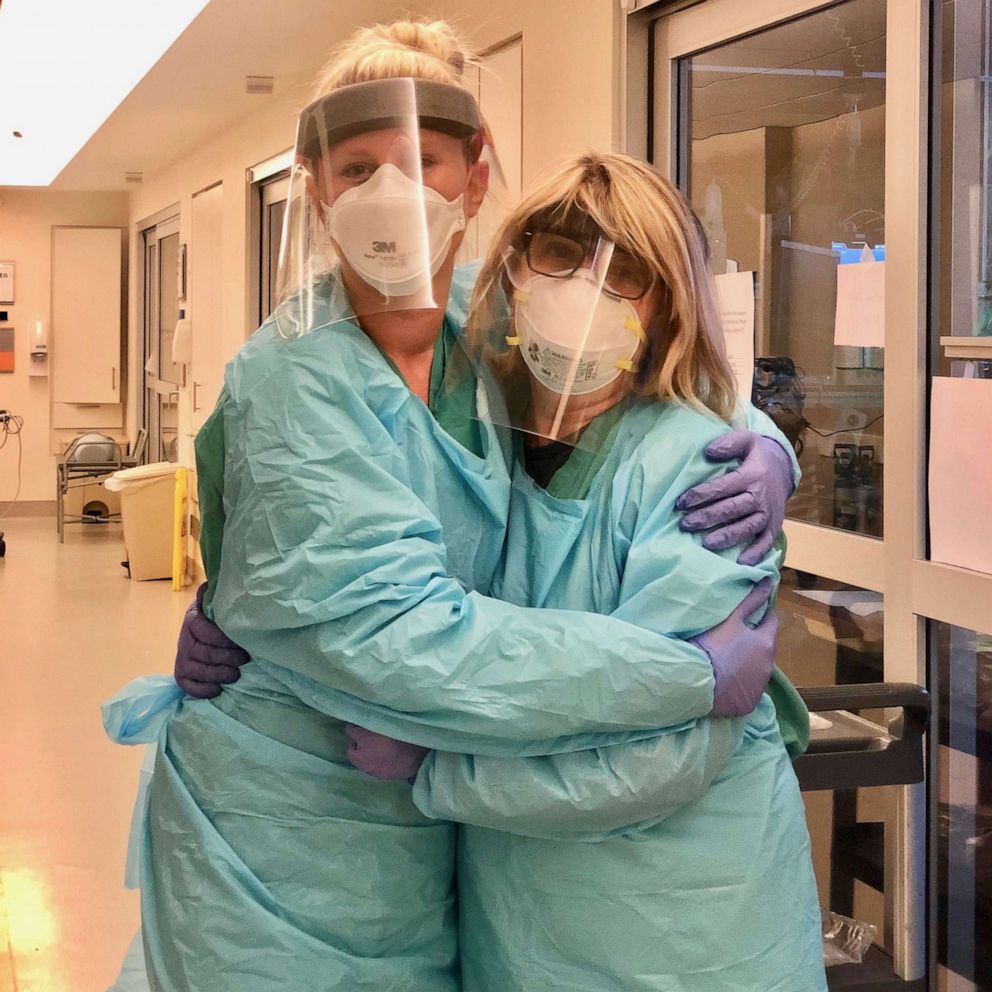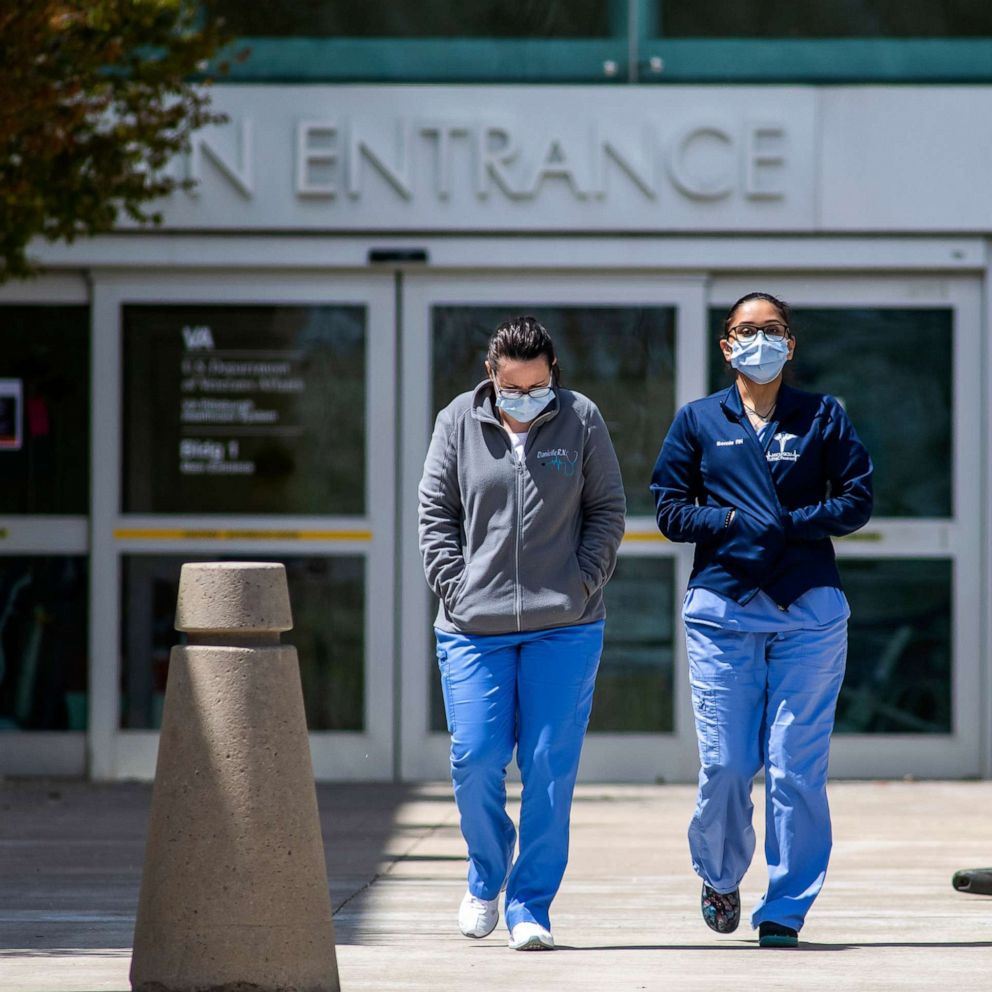One nurse's clever solution to help nervous, non-English speaking COVID-19 patients
Danielle Fenn works in a non-intensive care COVID-19 unit.
With personal protective equipment that hides her smile and muffles what used to be effortless communication, one nurse came up with a unique solution to help her coworkers and patients feel more comfortable in the hospital during the coronavirus pandemic.
Danielle Fenn, a registered nurse at Dartmouth-Hitchcock Medical Center in Lebanon, New Hampshire, told ABC News' "Pandemic: What You Need to Know" about her experience working in a non-intensive care COVID-19 unit.
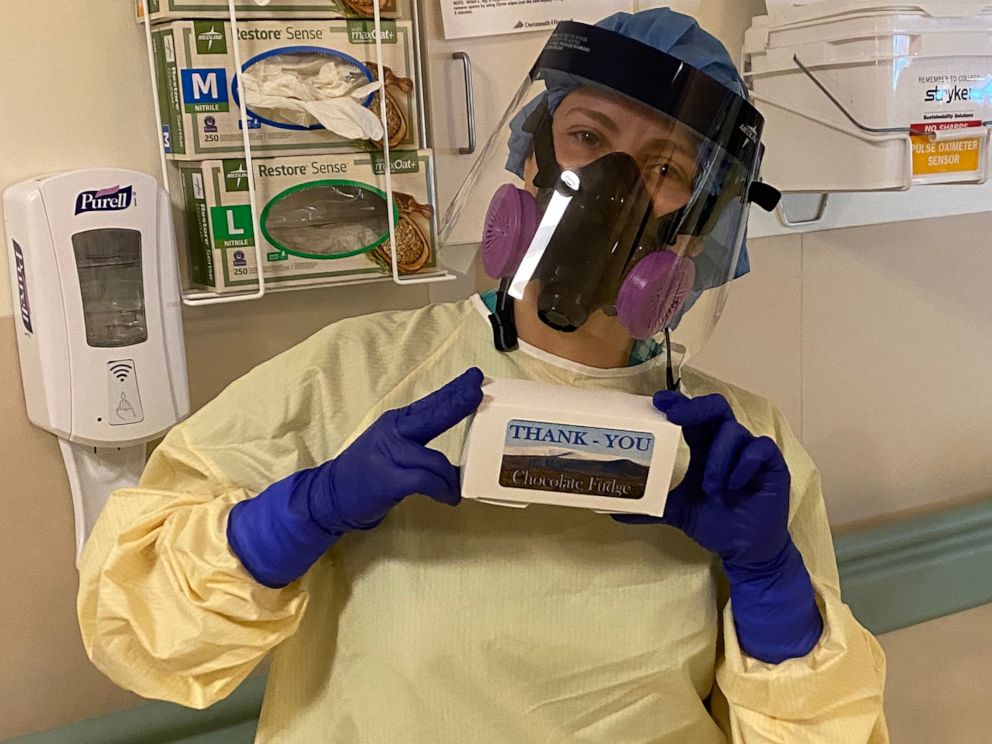
"Being a nurse is very important to me because I just love taking care of patients," Fenn said.
Fenn, who is originally from Brazil, was living in Germany before she came to the United States in 2004 to be with her late husband and train to become a nurse. Now, her international roots are playing an instrumental role in caring for her patients.
Tune into ABC at 1 p.m. ET and ABC News Live at 4 p.m. ET every weekday for special coverage of the novel coronavirus with the full ABC News team, including the latest news, context and analysis.
"I received a message from one of my coworkers and we were getting a COVID patient that was from Brazil that didn't speak very much English," Fenn said of a recent patient. "They had trouble communicating with him and he was scared. I walked him through simple questions and gave him my cell number. I told him if he needed anything to call me."
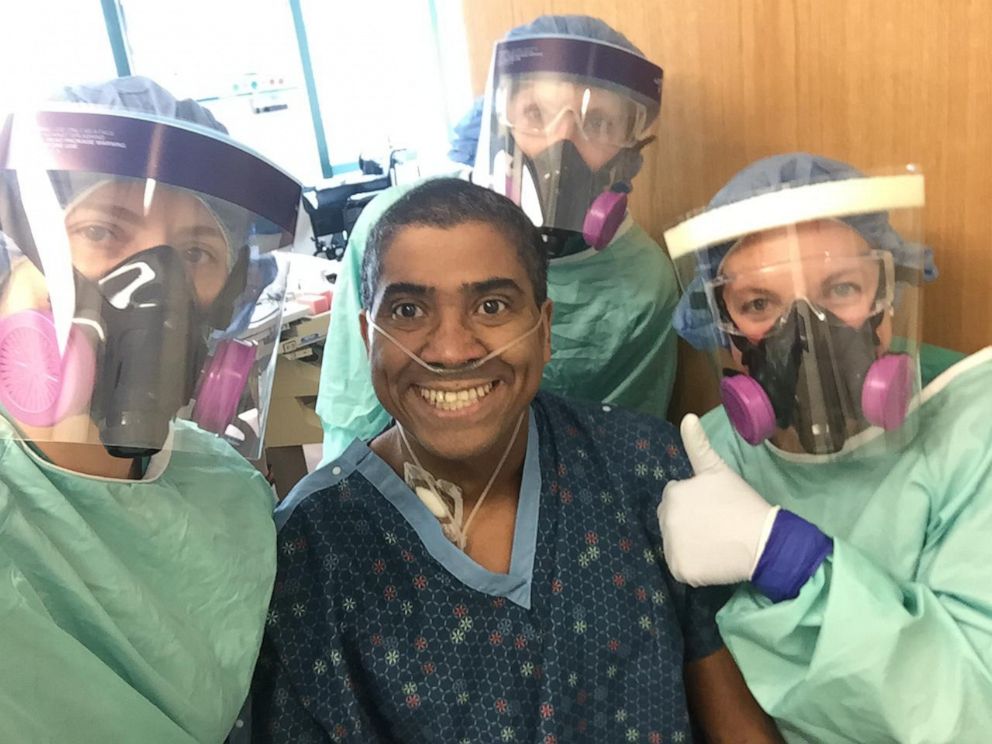
Early the next day, Fenn found the patient's room and wrote "Good Morning" in Portuguese on a dry erase board so that he'd see it when he woke up.
"I developed a relationship with them and decided to create signs around the hospital to help other patients and health care workers," she said. "Signs are very important for patients who can't speak English very well... For the little simple things, it's nice to be able to use these signs."
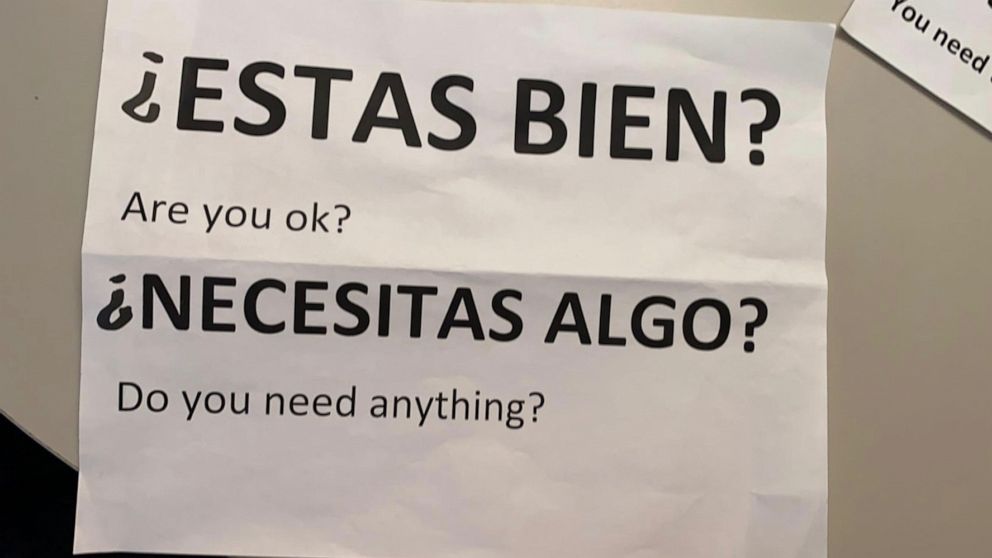
The signs have proved especially useful during the pandemic since protective gear like masks, which cover the entire face, make it that much more difficult to communicate.
Fenn said she's also treated Spanish-speaking patients and that they've also shown appreciation for her effort.
The widowed mother of two said that her love for her patients stems from a long-standing commitment to wanting to help the people she loves -- her late husband in particular.
"I made a promise to myself that if anyone that ever needed my care or any loved one would need something, I would be there. Little did I know that's going to be my husband," she said. "My husband was diagnosed with terminal brain cancer. It was very hard. Our children were aged 5 and 3. After the first round of chemotherapy, he did well for a little while and then the cancer started to grow again and was more aggressive."
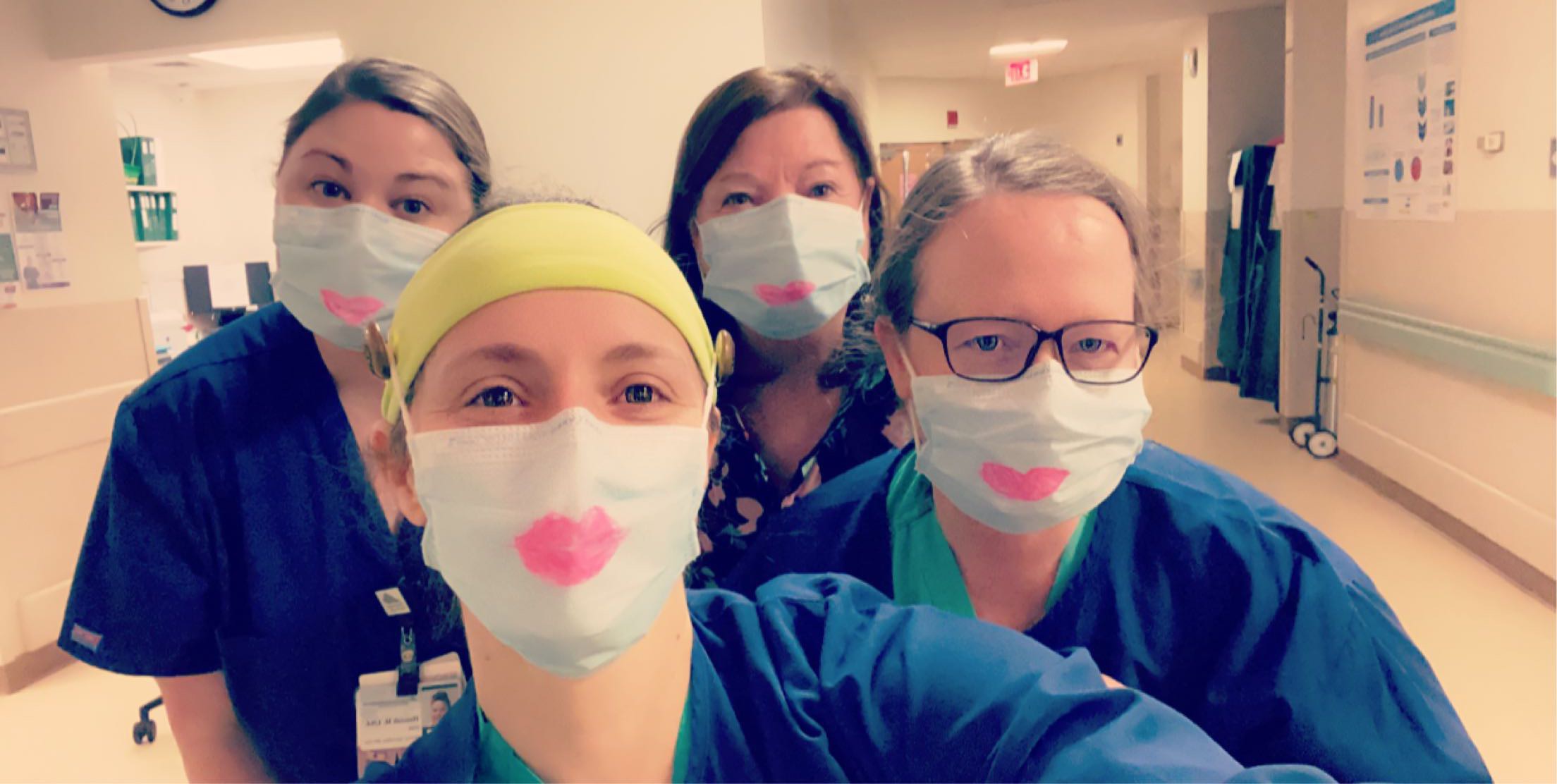
"That was definitely the hardest. But still, being a nurse is just my favorite," Fenn said. "I love to come in and be able to bring a smile to their faces."
Now, even on Fenn's off days, she has continued to help others by setting aside time to sew masks for her fellow hospital workers.
"My heroes are all of my coworkers, from executives to housekeeping," she said. "Everyone really has gone above and beyond to come together as a team to provide the best care possible."
